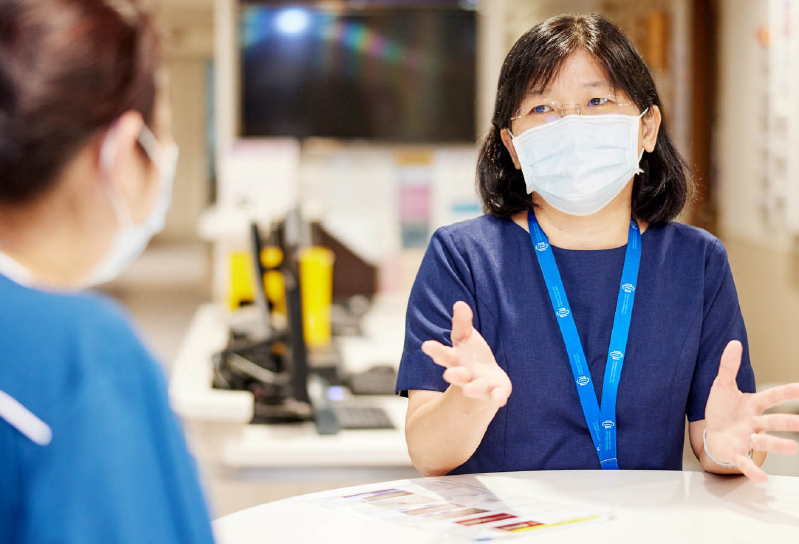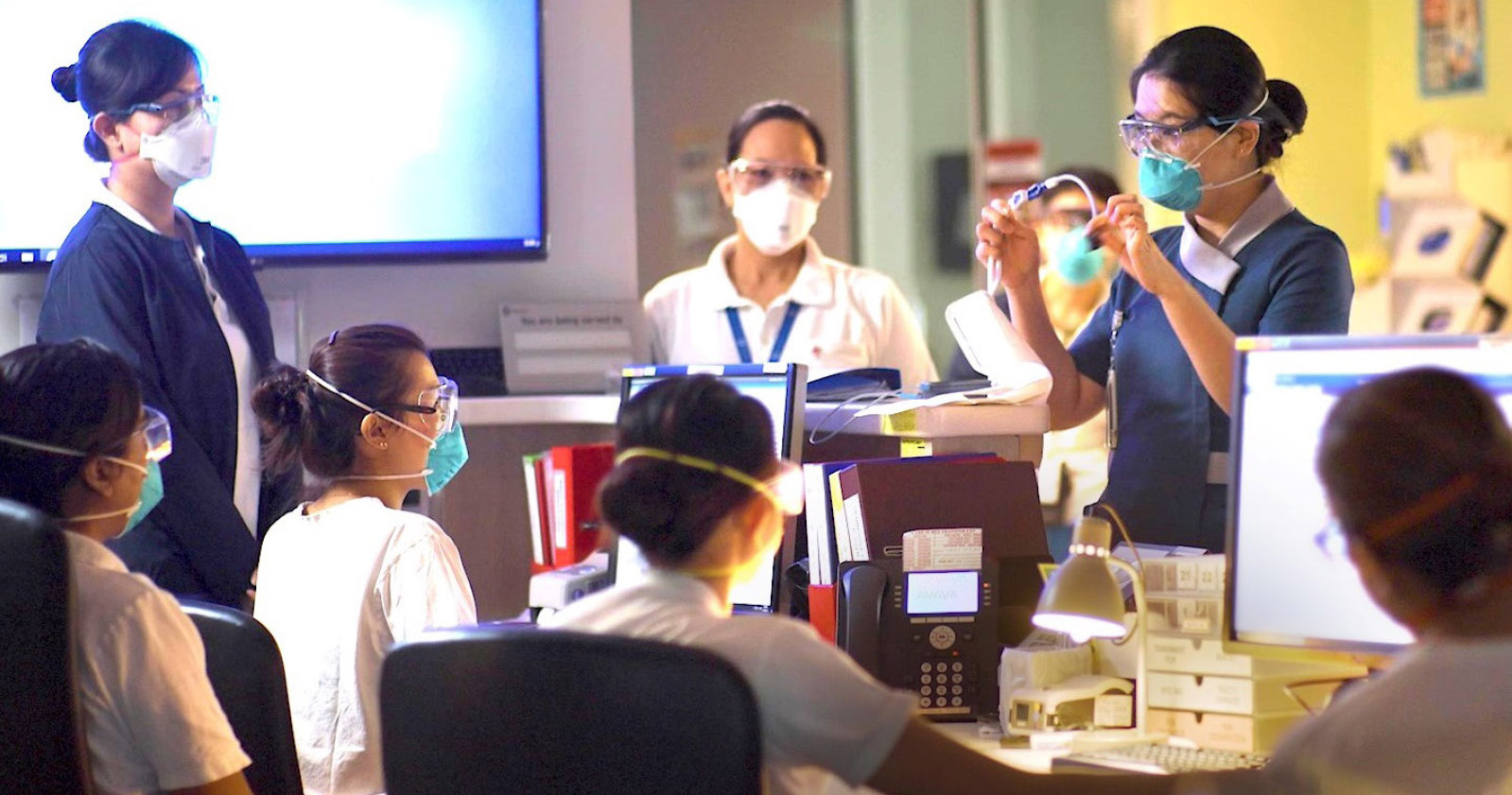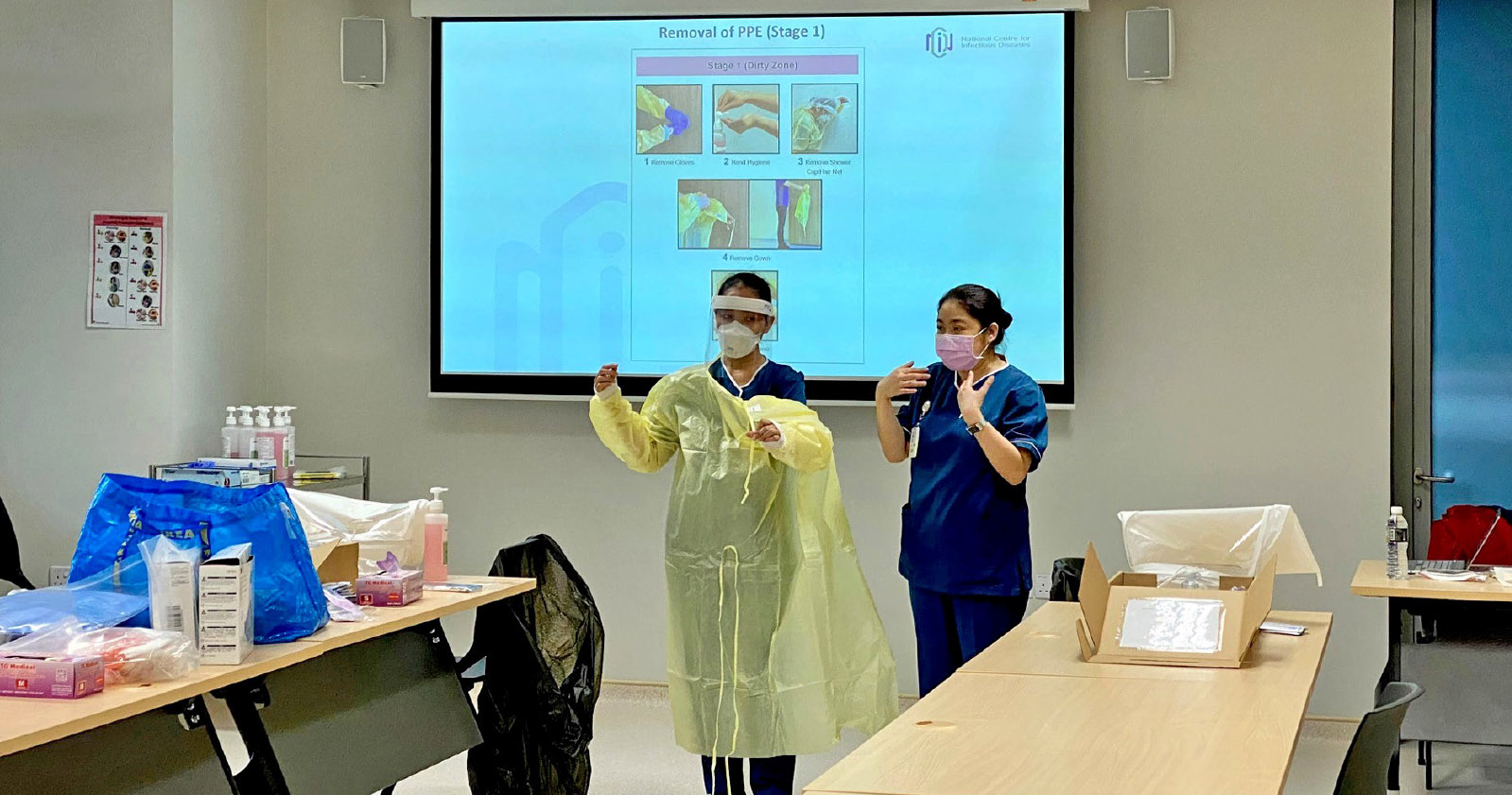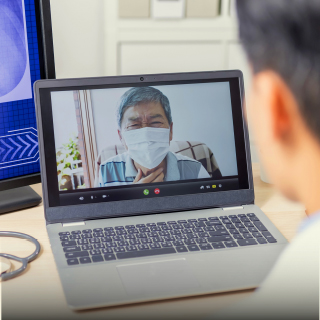REFLECTIONS OF
AN NCID NURSE
What struck me most during SARS was the importance of leadership walking the talk. I vividly remember my then-CEO undergoing mask-fitting, learning how to don PPE, and coming to the wards to encourage frontliners. This time around, I knew I wanted to be a leader that my nurses could count on.
DR MARGARET SOON,
DIRECTOR OF NURSING, NATIONAL CENTRE FOR INFECTIOUS DISEASES
Back in 2003 during the SARS outbreak, Dr Margaret Soon, director of nursing at the National Centre for Infectious Diseases (NCID), was pregnant with her first child. Despite being offered the chance to be deployed to a non-clinical setting, Dr Soon stuck to her post at that time as an infection control nurse.
17 years later, her frontline experience during SARS was put to the test with the emergence of a new global virus.


CLEAR AND TRANSPARENT
COMMUNICATION
After NCID confirmed its first case of COVID-19, Dr Soon went down personally to the ward to relay the news to her nurses. She said, “I wanted to make sure that our nurses had the opportunity to share any concerns and express their fears.”
To further prepare her team, many briefing sessions were conducted with regards to the new virus and provisions made to keep nurses safe. The sessions also covered the broad principles of infection control and management, as well as the importance of personal protective equipment (PPE) and its recommended use.

BOOSTING CAPACITY
NCID’s capacity was ramped up quickly as the team readied itself to battle the impending surge in infection.
“We had to open more wards and add extra beds in every room, sometimes working till the wee hours of the night. Everyone pressed on till all the work was done for the wards to be fully functional,” recounted Dr Soon.
To augment NCID’s manpower strength, personnel were seconded from other public healthcare institutions, including Tan Tock Seng Hospital. Incumbent staff also had to find creative ways to rapidly orientate these nurses and get them up to speed with the infrastructure, set-up and equipment, so they could start working in NCID safely.

THE COVID-19 MARATHON
When the Delta wave hit Singapore in mid-2021, Dr Soon recalled that it was an especially trying time at NCID. The nurses were already exhausted, having been in the thick of action for over a year.
“The patients that came in were more sick and generally older,” she said. With hardly any downtime, the morale of nurses took a hit as they soldiered on with no seeming end. “Encouraging them and lifting their spirits became a priority,” said Dr Soon.
By the time the Omicron wave arrived in Singapore in early 2022, the NCID team had more experience dealing with COVID-19 and that helped them manage the surge more efficiently.
STAYING
PREPARED
“Healthcare workers and many other frontline staff stayed strong and remained resilient in the darkest moments of the pandemic. Let’s not forget the many lessons we’ve learnt and continue to be prepared for any other emerging infectious diseases that may hit us in future.”
DR SOON
PERSONAL TAKEAWAYS
Looking back, Dr Soon cited a few key learnings from the pandemic.
NEW WAYS OF WORKING
At NCID, the nurses were constantly learning amid an ever-evolving environment. For instance, by leveraging technology, the nurses were able to help patients connect with their family members while in isolation.
DOUBLING DOWN ON INFECTION CONTROL
NCID nurses are now more involved in inculcating the importance of protective measures such as good hand hygiene and keeping up to date with needed vaccinations.
UNITED IN PURPOSE
A strong focus on a common mission lent nurses the stamina to keep going in the face of exhaustion and frustration.
LITTLE ACTS OF KINDNESS GO A LONG WAY
The generosity, love, care and concern of Singaporeans for frontline staff made a world of difference.
Photos: National Centre for Infectious Diseases and Mediacorp Studio 3














